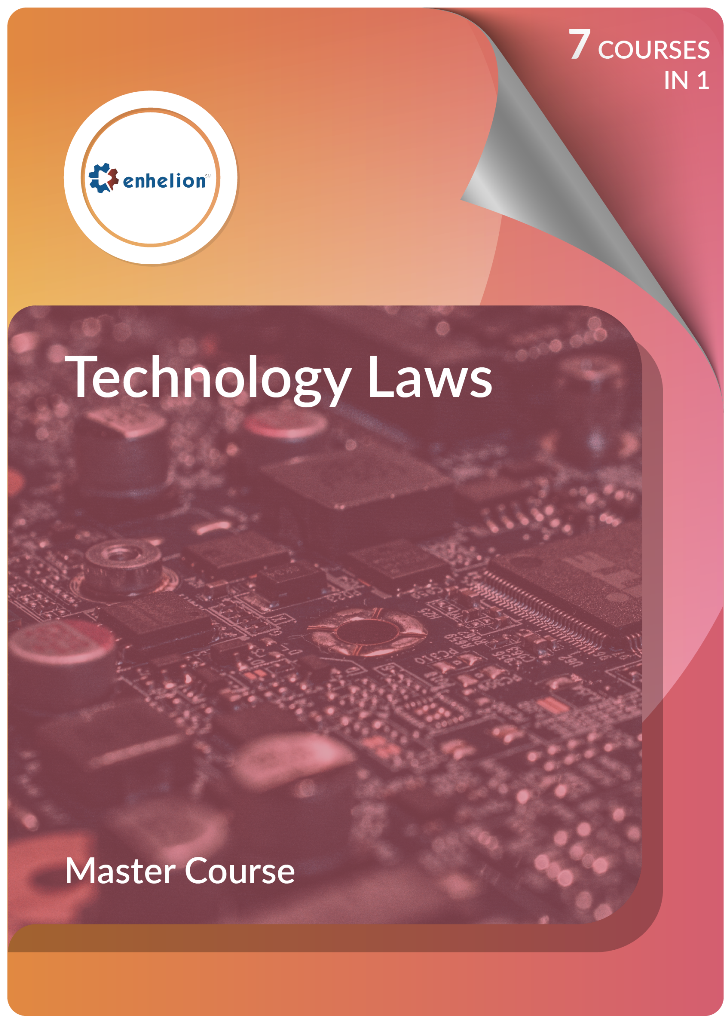Enrol for Lifetime Deal Course and get Access to 80+ Certificate Courses at INR 5999
Enrol for a Master Course at INR 4599 and get access to multiple Certificate Courses
Enrol for a Diploma Course at INR 3599 and get two free Certificate Courses
Enrol for a Certificate Course at INR 2499 and get one free Certificate Course

₹12,997.00 Original price was: ₹12,997.00.₹4,599.00Current price is: ₹4,599.00.
1. WHAT IS A MASTER COURSE?
A Master Course consists of a bundle of six to seven courses concentrated on a particular field of law. For instance, a Master Course of Intellectual Property Rights consists of courses pertaining to the related fields of IPR (Art Law, Internet Law, Fashion Law, etc.)
2. WHY SHOULD YOU CHOOSE A MASTER COURSE?
A Master Course provides the student access to related courses of a particular field at affordable fees. It is pertinent for anyone who intends to carry out an in-depth study of a specific field.
3. WHAT IS INCLUDED IN A MASTER COURSE?
Enrolling for the master program will enable you to:
According to the law firm and our policy, the course fees will not be refunded. Technological advancement has paved its way into the legal sector in recent times. These laws are complex in nature and thus required more than just a theoretical perspective of it. The courses pertaining to technology offer a wide-ranging understanding of varied areas of the sector and the experience of the legal professionals ingested in the courses makes the study all the more simple.
Please Note: The courses included in the Master Course of Technology Laws can be enrolled individually as well. To enroll, Click here.
NOTE- The course content has been updated vis-a-vis the Drone Rules, 2021.
The following are the modules which are covered under the course-
Rodney D. Ryder is the founding partner at Scriboard and is a leading technology, intellectual property and corporate lawyer. He is the author of Guide to Cyber Laws: the Information Technology Act, 2000, E-Commerce, Data Protection and the Internet, the first section-wise analysis of the Indian Information Technology Act, 2000. He is presently Advisor to the Ministry of Communications and Information Technology, Government of India on the implementation of the Information Technology Act, 2000.Mr. Ryder has been nominated as a 'Leading Lawyer' in intellectual property, technology, communications and media law by Asia Law, Who'sWhoLegal, Asia Legal 500, amongst other International publications. Mr. Ryder is also advisor to the Data Security Council of India [a NASSCOM initiative] on the structuring of industry data privacy and information security policies and contractual standards. His second book, Intellectual Property and the Internet, published by LexisNexis is perhaps the only one of its kind in Asia. The text has been acknowledged to be an authoritative work by the Hon’ble Supreme Court of India and has been quoted in the first and only judgement by the Hon’ble Supreme Court of India on domain names. He is advisor to the National Internet Exchange of India [NiXI] and a member of the panel of independent and neutral arbitrators with NiXI.
In every walk of life, the process of evaluation takes place in one form or the other. If the evaluation process is eliminated from human life then perhaps the aim of life may be lost. Being in the same line, Enhelion is committed to evaluating the process of learning through its courses.
The evaluation will be conducted in a two-fold manner. There will be an MCQ test for each course bundled together as a Master course, that would test the basic understanding of the topics covered in the courses. Furthermore, there will be one Project Assignment, which would test the analytical understanding of the same.
The most intriguing aspect of the evaluation process is the time flexibility it affords. You can take the MCQ test and submit the project assignment as per your convenience.
To be eligible to receive a certificate after successful completion of the course, one is required to secure a minimum of 40 percent overall.

Search Courses